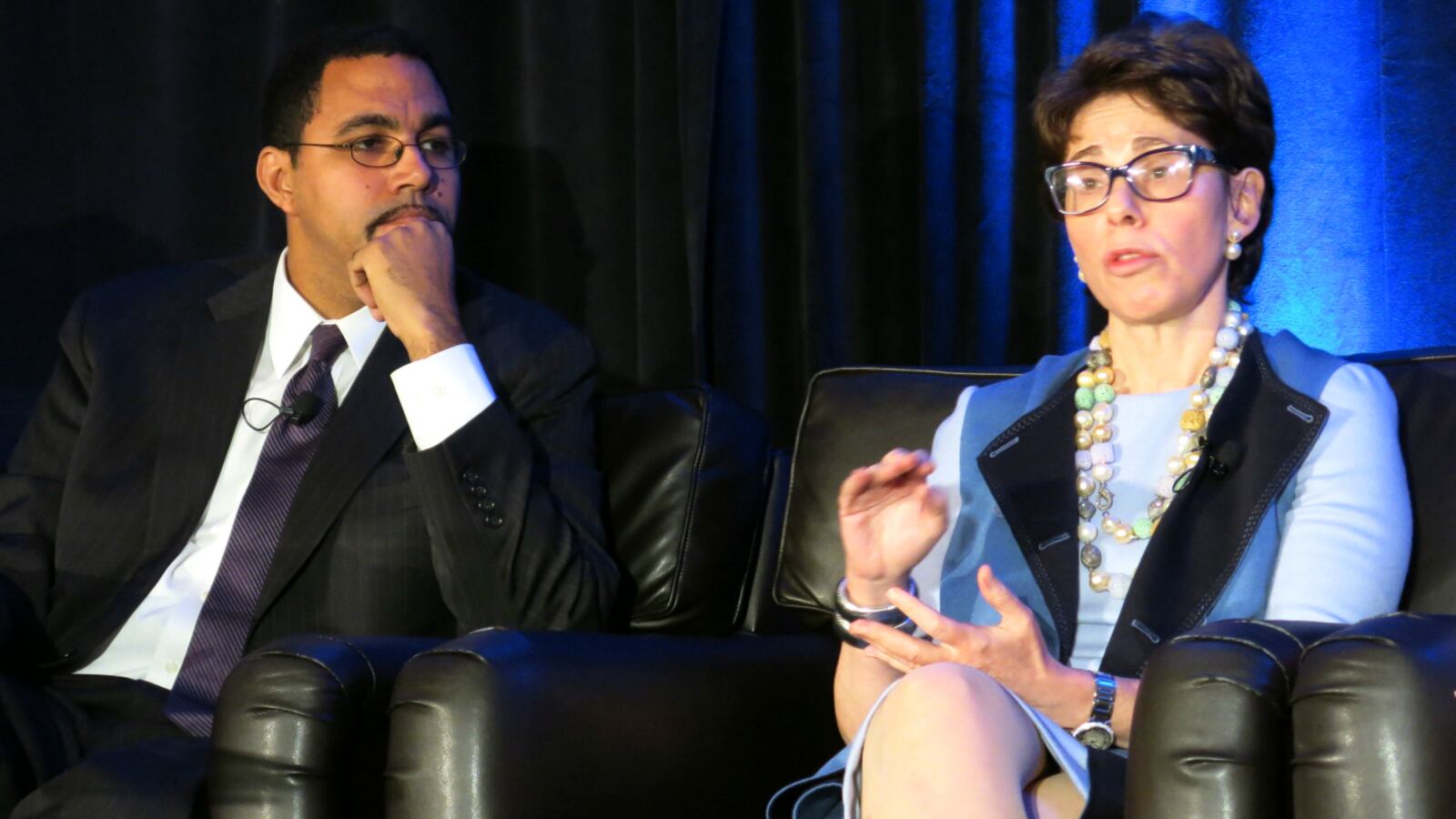New York’s top education official, who sharply criticized parents who might keep their children from taking state tests a few months ago, offered a different message for parents of some students with special needs on Monday.
“Personally, I would say that if I was the mother of a student with a certain type of disability, I would think twice before I allowed my child to sit through an exam that was incomprehensible to them,” Board of Regents Chancellor Merryl Tisch said in Albany.
Tisch’s remarks came after federal education officials rejected New York’s request to loosen testing requirements for some high-needs students in June. The waiver would have exempted English language learners who have attended U.S. schools for less than two years from taking the tests, and assessed students with severe disabilities based on their instructional level, rather than their age-based grade.
Tisch has never disagreed with critics who say testing requirements for certain high-needs students are unfair, though she also hadn’t before suggested that opting students out was the right response. The solution, she said, would come through the state’s test-exemption request.
But the Obama administration’s denial means state education officials won’t be able to ease testing anxiety for those students and parents as they thought they might be able to. It also represents a roadblock in their efforts to reduce the general opposition to state tests that has steadily grown over the last few years.
Anti-testing advocates have estimated that upwards of 200,000 New York students, or roughly 20 percent of test-takers, did not take the state English and math exams this year — more than double the number who opted out in 2014. (That share is considerably smaller in New York City.) Their parents say it is a form of activism against policies that has led to a narrowing of the focus of teaching and an overemphasis on tests.
Seeking to discourage more parents from joining in, Tisch said in March that parents who opted out of the 2015 tests were making a “terrible mistake because it eliminates important information about how our kids are doing.”
In the months since, the state has appointed a new education commissioner, MaryEllen Elia, and ended its main contract with Pearson, the test-maker that had become a target of the opt-out movement. Elia also announced on Monday that she was planning a full review of the state’s adoption of the Common Core learning standards and its testing policies (a move also required by law).
The U.S. Department of Education did approve many of New York’s requests for flexibility from the No Child Left Behind Act, which required states to annually test students in grades three through eight in math and English. The state is now making small changes to how it identifies struggling schools as a result, and will require more intensive intervention for schools that are re-identified as low-performing based on academic and achievement data from the last school year.
But its request to exempt certain high-need students from some testing requirements was denied. Assistant Secretary of Education Deborah Delisle wrote that the current testing requirements were necessary to ensure that academic progress of all students is properly tracked.
The federal education department did grant a waiver to Florida that would have allowed the test scores of certain high-need students to be withheld from the state’s school-accountability calculations. New York’s request would have actually exempted some students from the tests altogether.
For now, state officials say they have few options to reduce testing for those students.
Both houses of Congress are moving to change federal education law. The law was overhauled in 2002 by George W. Bush, and its standardized testing requirements and their stringent use for accountability purposes are among its least popular provisions. The Republican-controlled House of Representatives and Democrat-controlled Senate have advanced different versions of the law, which must ultimately get approval from President Obama.
Ira Schwartz, New York’s deputy education commissioner, said that neither version includes specific flexibility for high-needs students that they have been seeking.
Regent Roger Tilles asked if a lawsuit was possible, but state education officials said a similar, unsuccessful case in Connecticut meant that the chances of winning were grim. Tilles then said officials “should figure out a way to lodge a protest.”
“We thought that there were ways indicating that students were not up to their grade level without making them take a test that everybody knows they’re going to fail,” said Tilles.
“This would be the appropriate time to lodge that,” Schwartz responded.

